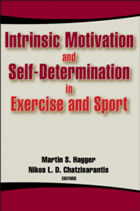WORSENING OBESITY AND FAILING SCHOOLS SHARE
A COMMON CONNECTION
"A country is as strong as its citizens,
and I think mental and physical health,
mental and physical vigor go hand in hand."
- John F. Kennedy
 Isn't
it ironic that the solutions offered by many
of our educational leaders for saving failing
schools and improving academic performance
mimic the joyless obesity solving strategies
popularized in the media? Sadly, it's never
worked for weight loss, and today hinders
the creation of innovative and successful
21st century schools. Isn't
it ironic that the solutions offered by many
of our educational leaders for saving failing
schools and improving academic performance
mimic the joyless obesity solving strategies
popularized in the media? Sadly, it's never
worked for weight loss, and today hinders
the creation of innovative and successful
21st century schools.
Here's the thinking with obesity. As everyone
knows, losing weight is fundamentally a simple
task: people need to eat less and be more
physically active. The solution is to control
calories in and calories out. And if basic
science is unconvincing, history is replete
with sad images of what happens to the human
body when deprived of food and forced to work.
Fast forward to our apparently insatiable
appetite for so-called "reality"
television. Among the most popular shows is
the weight-loss focused "Biggest
Loser" series. Shows like the Biggest
Loser illustrate the general public's pathological
and voyeuristic addiction to finding amusement
in watching people suffer. The menu of dietary
deprivation and torturous physical exercise
sprinkled with public humiliation, embarrassment,
and bullying leaders makes for entertaining
viewing. But at what cost?
It's well established that most obesity reduction
strategies don't work. People quickly regain
the same or sometimes even more weight. But
beyond weight concerns, we might also wonder
about the broader effects of such joyless
and oppressive experiences. What possibility
is there that these broken down, overweight
individuals will retain any motivation to
continue trying to regain their health and
lead active lives? Not much I imagine.
BOOK
REVIEWERS WANTED!
Interested in writing a book review?
Write a review and keep the book, free.
A great way to build your personal library!
Contact Kayla
at pelinks4u@gmail.com
for details. |
|
Share YOUR thoughts on AAHPERD Reorganization
Read
this letter from the NASPE Board
(Microsoft
Word) (web
page)
|
ARTICLE
WRITERS WANTED!
Do you have a physical education article
you'd like to publish, or would you
like to write an article for pelinks4u?
Contact Steve
Jefferies or Kayla
for details. |
A few years ago, basketball star Shaquille
O'Neil employed similar methods as part
of his "Big
Challenge." Here he targeted obese
teenagers. Mixing his celebrity allure with
daily doses of intense and painful physical
exercise, he tried to show how he could get
young people to lose weight. Many dropped
out. It was hard work. It wasn't fun. And
it hurt.
Of course it hurt. It's hard to imagine even
someone in good physical condition not suffering
if we forced them to carry 30 or more extra
pounds on their body while exercising. How
must it have felt for these young teens? Sadly,
the long-term impact of O'Neil’s well
intended obesity intervention more than likely
created a permanent revulsion towards physical
activity.
To be learned from both of these examples
is that oppressive and joyless weight loss
methods just don't work. But what has this
to do with declining academic performance
and failing schools? Everything. Because for
the past few years we've witnessed a growth
in equally oppressive and joyless academic
regimens. In their paranoia to improve test
scores, despite widespread evidence that more
and more students today fail to find any relevance
in their schooling, too many educational leaders
have convinced themselves that they are capable
of imposing learning. Here's their thinking:
If we give students more math, more writing,
and more reading they'll get smarter. Wrong.
Small wonder that approximately 7000 students
drop out of American high schools daily.
What's interesting is that one of the few
places in school where this kind of logic
makes any sense is in improving kids' physical
fitness. Only here does more time spent exercising
typically translate into increased fitness.
As with almost everything else it’s
not so much 'time' thats critical,
but rather HOW that time is spent.
Why should academic skills be any different
than physical skills? As those of us in physical
education can attest, repeating any sport
skill 100 or a 1000 times using the wrong
technique only reinforces failure. More time
in math or reading isn't the answer. Even
worse it's tedious, boring, frustrating, and
demotivating.
Sadly, well-meaning but misguided school
administrators are cutting physical education,
music, and arts programs so that their students
can spend more time studying these "core"
subjects. Well, how much time is "enough?"
Presumably, following this kind of thinking,
if kids continue failing to perform we'll
just keep heaping on the time. Surely we can
break them eventually? Regardless of how they
feel about school, we'll make them learn.
Everyone in education wants kids to learn,
but how long will we persist in these misguided
and doomed interventions? Our students need
better instruction, not just more time. And
better instruction demands that we avoid the
same oppressive strategies that have failed
us in trying to reduce obesity.
We need to create schools that our children
want to attend. We need to connect with the
whole child and quit this artificial and nonsensical
separation of the mind and body. Bodies, especially
young and growing ones, need to move, and
imposing more seat time is counterproductive.
It dulls their brains and turns kids off of
school. Through removing physical education,
arts, and music, schools are creating joyless
and oppressive learning environments. It hasn't
worked for obesity, and it won't work for
our kids' learning.
Steve
Jefferies, publisher pelinks4u
|














 Isn't
it ironic that the solutions offered by many
of our educational leaders for saving failing
schools and improving academic performance
mimic the joyless obesity solving strategies
popularized in the media? Sadly, it's never
worked for weight loss, and today hinders
the creation of innovative and successful
21st century schools.
Isn't
it ironic that the solutions offered by many
of our educational leaders for saving failing
schools and improving academic performance
mimic the joyless obesity solving strategies
popularized in the media? Sadly, it's never
worked for weight loss, and today hinders
the creation of innovative and successful
21st century schools.